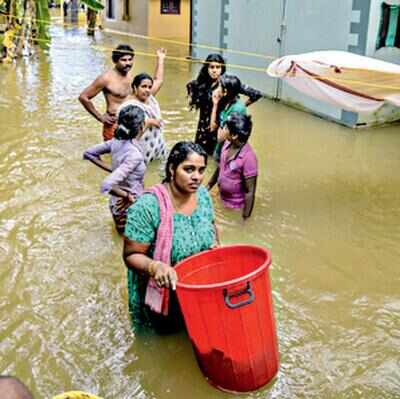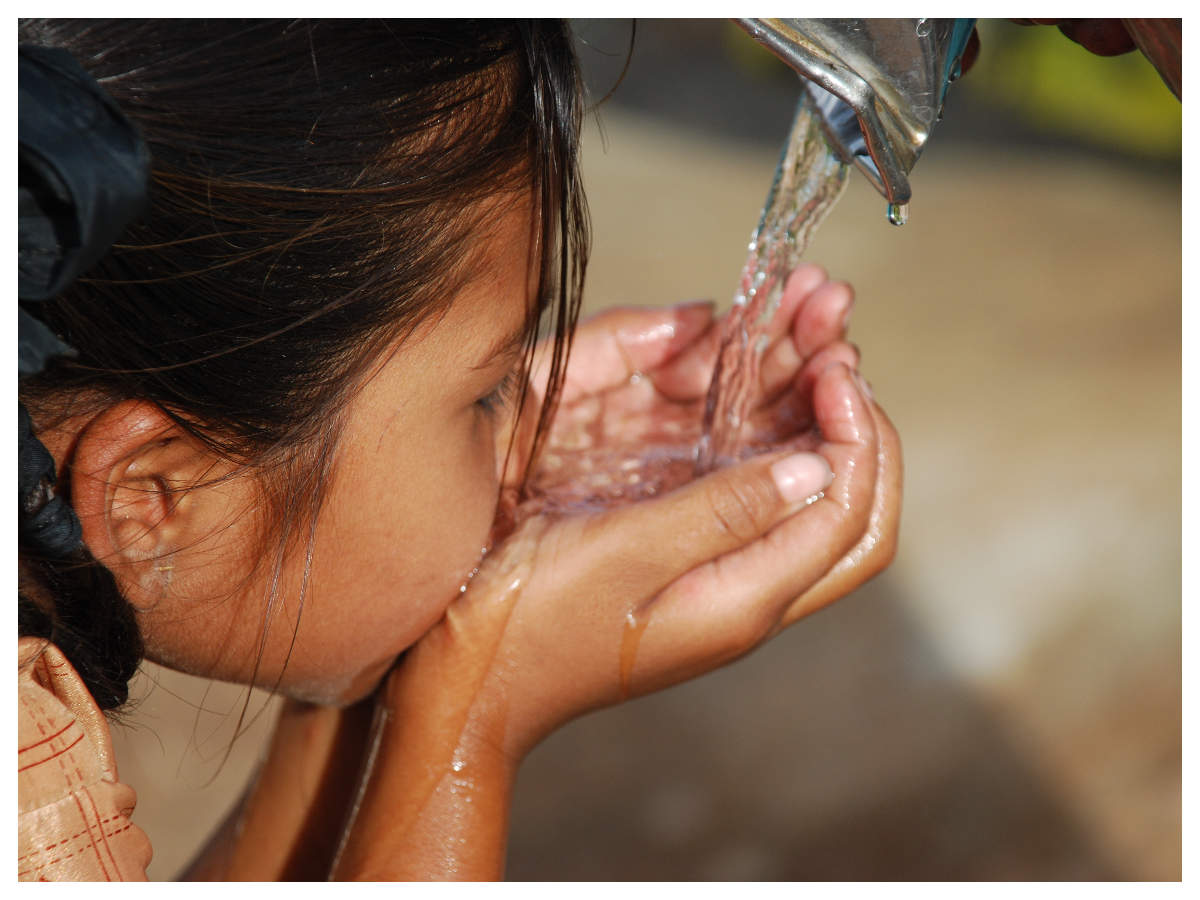
Thiruvananthapuram: At least 63% of 2018 flood-hit people were waiting for the state government to address their grievances at least until November 2019, claimed a report on ‘community participation and rebuilding’ prepared by Unicef with the support of Kudumbasree mission.
While 10% of households reported that their grievances have been addressed fully, 25% confided that their issues were addressed partially by the government. However, 63% of households said their grievances have not been addressed at all by the authorities. “It’s a matter of concern that 83% of households in Kottayam district, 70% in Ernakulam, 63% in Idukki and 60% from Pathanathitta and Thrissur districts have reported that their grievances have not been addressed,” said a section in the report that dwelt deep into the grievance redressal of flood victims. The report was prepared based on the studies carried out during the August-November 2019 period.
Discussions with focus groups comprising of SC/ST, elderly, adolescent children, labourers, fish workers etc proved that the focus groups wanted the government to set up grievance redress mechanisms at the level of panchayat and urban local body and wanted a single-window system for the purpose.
Another finding in the study is that only a few households (9%) at the state level have taken bank loans (other than Resurgent Kerala loan scheme) in order to recover from the impacts of the 2018 disaster. “A total of 91% of households reported that they have not availed any loan from banks. While only 6% of households resorted to bank loans in Wayanad, 13 % of households have taken bank loans in Ernakulam,” the study said.
The report revealed that 12% each of SC/ST and agriculture labourers/small farmers availed bank loans, followed by 11% of fisher folk/daily-wage earners, only 3% of guest workers have taken loans to recover from disaster impacts.
Among the 53% of total households who have school/college-going children at home, 45% of the households informed that the children at their homes could not attend to school/colleges temporarily during and immediately after floods. “But 2% households informed that the children at their homes have stopped going to school/college after the floods,” the report said.
Regarding the post-disaster trauma among children, the report said a majority of children did not show much symptoms across districts. But 3% of households in Alappuzha, 5% in Ernakulam, 11% in Idukki, 4% in Kottayam, 3% in Pathanamthitta, 2% in Thrissur and 4% in Wayanad reported that their children have undergone post- disaster traumatic stress repeatedly.
While 10% of households reported that their grievances have been addressed fully, 25% confided that their issues were addressed partially by the government. However, 63% of households said their grievances have not been addressed at all by the authorities. “It’s a matter of concern that 83% of households in Kottayam district, 70% in Ernakulam, 63% in Idukki and 60% from Pathanathitta and Thrissur districts have reported that their grievances have not been addressed,” said a section in the report that dwelt deep into the grievance redressal of flood victims. The report was prepared based on the studies carried out during the August-November 2019 period.
Discussions with focus groups comprising of SC/ST, elderly, adolescent children, labourers, fish workers etc proved that the focus groups wanted the government to set up grievance redress mechanisms at the level of panchayat and urban local body and wanted a single-window system for the purpose.
Another finding in the study is that only a few households (9%) at the state level have taken bank loans (other than Resurgent Kerala loan scheme) in order to recover from the impacts of the 2018 disaster. “A total of 91% of households reported that they have not availed any loan from banks. While only 6% of households resorted to bank loans in Wayanad, 13 % of households have taken bank loans in Ernakulam,” the study said.
The report revealed that 12% each of SC/ST and agriculture labourers/small farmers availed bank loans, followed by 11% of fisher folk/daily-wage earners, only 3% of guest workers have taken loans to recover from disaster impacts.
Among the 53% of total households who have school/college-going children at home, 45% of the households informed that the children at their homes could not attend to school/colleges temporarily during and immediately after floods. “But 2% households informed that the children at their homes have stopped going to school/college after the floods,” the report said.
Regarding the post-disaster trauma among children, the report said a majority of children did not show much symptoms across districts. But 3% of households in Alappuzha, 5% in Ernakulam, 11% in Idukki, 4% in Kottayam, 3% in Pathanamthitta, 2% in Thrissur and 4% in Wayanad reported that their children have undergone post- disaster traumatic stress repeatedly.

Coronavirus outbreak
Trending Topics
LATEST VIDEOS
City
 Delhi-NCR: Shocking visuals of hit and run case caught on CCTV in Ghaziabad
Delhi-NCR: Shocking visuals of hit and run case caught on CCTV in Ghaziabad  Covid-19: Delhi LG Anil Baijal overrules Arvind Kejriwal's decision, orders Delhi govt hospitals to treat all patients
Covid-19: Delhi LG Anil Baijal overrules Arvind Kejriwal's decision, orders Delhi govt hospitals to treat all patients  Shocker from Tamil Nadu: Patient murdered brutally by unidentified men in Madurai hospital
Shocker from Tamil Nadu: Patient murdered brutally by unidentified men in Madurai hospital  Personal data of 2.91 crore job seekers leaked on dark web, reveals Maharashtra Cyber Department
Personal data of 2.91 crore job seekers leaked on dark web, reveals Maharashtra Cyber Department
More from TOI
Navbharat Times
Featured Today in Travel
Quick Links
Kerala Coronavirus Helpline NumberHaryana Coronavirus Helpline NumberUP Coronavirus Helpline NumberBareilly NewsBhopal NewsCoronavirus in DelhiCoronavirus in HyderabadCoronavirus in IndiaCoronavirus symptomsCoronavirusRajasthan Coronavirus Helpline NumberAditya ThackerayShiv SenaFire in MumbaiAP Coronavirus Helpline NumberArvind KejriwalJammu Kashmir Coronavirus Helpline NumberSrinagar encounter
Get the app



